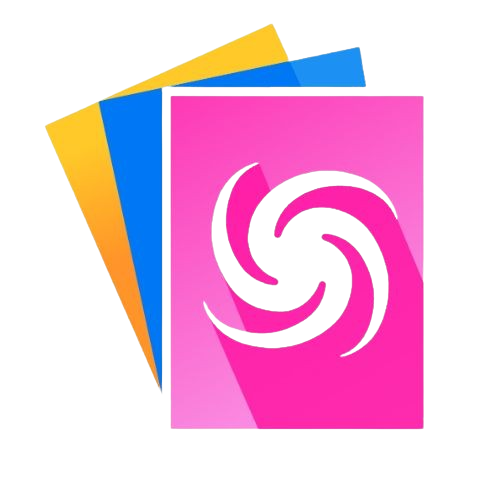by James Weeks | Aug 3, 2014 | Blog
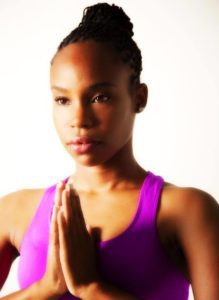
My daughter, Tulani.
We’re working on ideas for my upcoming film, Across The King’s River.
Keisha is a poet, writer and story consultant. We’re trying to nail down what’s driving the main characters in my film and why.
See, when you’re working on a documentary film, you just don’t take off somewhere and start filming. You’ll waste a lot of time and money that way.
You need to understand the core message of the film – the heart and the soul, and then you can craft a story around it.
We all have stories and I believe that our stories are sacred.
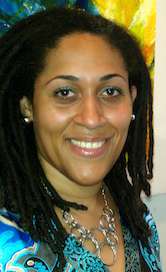
Keisha-Gaye Anderson
The problem is that too many of us are not in touch with our own story and drift through life without unlocking the power or the potential that lies within.
It’s not easy…
That’s what I’ve discovered as I work on my own story for the film. I’m one of the main characters in my film, and when you work with a story consultant like Keisha, she pushes you to understand what each character wants and why they want it.
I struggled as I reflected on what I want. I had to dig deep!
I’m going to ask you the same questions Keisha might ask if you were a main character in a book or a film.
1. What do you want at this stage of your life? Why do you want it?
2. What obstacles are you facing? What is holding you back from getting what you desire?
3. What do you feel conflicted about? What will happen if you don’t get what you want?
4. Do you want the same thing at this stage of your life that you wanted years ago?
5. What about the other characters in your life? What do they want?
6. Do other family members understand your story? Do you genuinely understand theirs?
7. Which characters outside your family do you closely identify with? Why?
8. Are you at peace with your story?
These questions are important whether you’re working on a film or not. Just like you can’t move forward in a film without clarity, you can’t move forward in life without clarity either.
You MUST understand what’s driving you.
If you’re feeling stuck right now, maybe it’s because you’re no longer clear about your story. Or maybe your story has changed or is in the process of changing and you’re not sure what it all means.
What have I learned from working on story development exercises with Keisha so far?
1. What we want isn’t always obvious to us.
2. Why we want something isn’t always obvious either.
3. Most of us are far more complex than we realize.
4. Most of us feel conflicted about who we are, what we feel, and what we want.
What about you? I would love to hear your thoughts, so feel free to comment.
To learn more about Keisha-Gaye Anderson and her upcoming books and film projects, visit her website at: http://www.keishagaye.com/
If you’ve enjoyed reading this blog article, sign up for my monthly inspirational newsletter. It’s free. Here’s the link.
Blessings,
James Weeks
Producer, Across The King’s River
by James Weeks | Jul 21, 2014 | Blog
I lost my first client…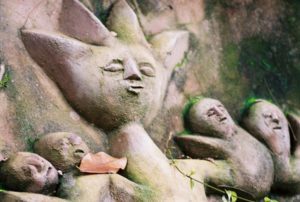
I did my first and last divination for her a few months ago. Last weekend, I got the blow. Her mom called to day that this brilliant, young woman who had so much to offer this world is no longer with us.
She collapsed suddenly and died.
I couldn’t believe it. Still can’t believe it. Her sudden death was yet another reminder that every moment is precious. Can’t take anything, anyone for granted.
How quickly we forget…
Her sudden passing also made me reflect deeply on the work that I do as an Ifa diviner.
You see, from my cultural and spiritual point of view as an Ifa diviner, things didn’t have to turn out this way.
She had been warned…
During the reading Ifa spoke of her health and the need to do ritual to protect it.
Sure, there were other reasons why spiritual work (ebo) was needed and I explained those as well.
But she DID NOT follow through with the rituals, nor did respond to my follow-up email.
Not sure why.
Who knows! Maybe she didn’t have the money! Maybe she didn’t think she was in danger. I clearly recall that health didn’t seem to be a concern when we spoke. She wanted guidance about her career, and her desire to have a baby.
But physically, she felt fine, she said. Sure, she had stress like we all do, but besides that, my client didn’t seem to have any health worries.
The fact that someone who seemed to be so healthy could suddenly die startled me. But it didn’t startle my elders in Africa one bit.
Experience has taught them over and over that when Ifa prescribes ritual medicine, it’s always for a good reason. Even if it doesn’t seem to make logical sense at the time.
Consulting Ifa but not following through with the rituals, is like going to a doctor but not listening to advice nor taking steps to improve your health.
Health issues come up often in my readings!
Given the statistics in our community it’s easy to see why. The report card on African-American health in the U.S. is horrific. Heart disease is the leading killer for ethnic minorities in the U.S. Fifty-percent of African-American women are expected to die from heart disease. One-third of African Americans suffer from high blood pressure. African-Americans are twice as likely to be diagnosed with diabetes than whites. Cancer is the second leading cause of death for ethnic minorities. African-American women are 36% more likely to die from breast cancer. African-American men are twice as likely to die from prostate cancer than whites.
As I reflect on these statistics, I feel deep gratitude for my elders in Africa and their deep, ancient knowledge. They have helped my family through many health issues that could have been devastating.
I feel honored to be a part of this ancient healing and spiritual tradition. It’s not easy working with clients in the West. African healing systems are not well-respected in the minds of many. Clearly, we have a lot of educating to do.
Working as a team, I know we can help save lives. We are committed to our craft.
But you must be willing to listen the first time.
If you’ve enjoyed this blog article. Sign up for my free monthly, inspirational news letter below.
Blessings
James Weeks/Across The King’s River
by James Weeks | Jun 17, 2014 | Blog
Crazy or not crazy?
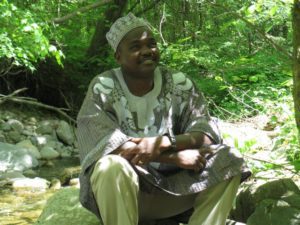
Malidoma Some
In this provocative article written by Stephanie Marohn, African shaman Malidoma Some offers a spiritual view of mental illness.
You can read the full article here:
In Dagara culture, “mental illness signals the birth of a healer,” says Malidoma Patrice Somé. “Thus, mental disorders are spiritual emergencies, spiritual crises, and need to be regarded as such to aid the healer in being born.”
“What those in the West view as mental illness, the Dagara people regard as “good news from the other world.” The person going through the crisis has been chosen as a medium for a message to the community that needs to be communicated from the spirit realm. “Mental disorder, behavioral disorder of all kinds, signal the fact that two obviously incompatible energies have merged into the same field,” says Malidoma. These disturbances result when the person does not get assistance in dealing with the presence of the energy from the spirit realm.”
Malidoma was shocked the first time he visited an mental institution in the West.
“What struck Dr. Somé was that the attention given to such symptoms was based on pathology, on the idea that the condition is something that needs to stop. This was in complete opposition to the way his culture views such a situation. As he looked around the stark ward at the patients, some in straitjackets, some zoned out on medications, others screaming, he observed to himself, ‘So this is how the healers who are attempting to be born are treated in this culture. What a loss! What a loss that a person who is finally being aligned with a power from the other world is just being wasted.'”
The Dagara view on mental illness intrigues me not only because it radically differs from the Western psychiatric model, but because I’m interested in how African healing modalities can benefit more of us in the West.
Granted, it’s no easy road but due to the increasingly popularity of African spirituality, I’m hopeful that the healing traditions of the Motherland might one day be as widely accepted (or respected) as acupuncture and other non-Western healing traditions.
In this You Tube clip, cultural and biological anthropologist, Chelsea Strayer, discusses her research into Asante healing traditions.
What are your thoughts on the Dagara perspective on mental illness? Or on the growth or challenge of integrating African healing traditions in the West? I would love to hear your comments.
And if you’re in need of a spiritual reading yourself or need to have spiritual work done, just let me know. I’m a professional Ifa diviner and my services are available.
If you enjoyed reading this article, sign up for my inspirational newsletter. It’s free. Here’s the link.
Blessings,
James Weeks
Producer/Across The King’s River
I
by James Weeks | May 21, 2014 | Blog
Here’s the deal…
The very thing that will take you to your next level of spiritual growth, or business growth or intellectual growth is not going to feel comfortable.
But you have to push on anyway.
Do the thing that you’ve been resisting. And once you do it, do it again and again until it becomes a way of life.
But that’s only if you want to move your life forward and I’m assuming you do.
Sign up for my free, inspirational, monthly newsletter and I’ll share the secrets that I’m learning along the way.
PERSEVERANCE…
The journey of this film teaches me this lesson over and over again. I’ll never forget the day my elders told me that it was time to leave my corporate job and dedicate myself 100% to this film project.
Had I known all the difficulties I would face I might have said NO! The reality is that:
1. I no longer have the big 401K retirement account I once had.
2. I don’t have health insurance.
3. I can’t predict how money I will earn each month from my Ifa consultation business.
4. And no one can predict how well my film will do once it’s complete and out on the market.
But here’s what I CAN tell you…
1. I’m happier!
2. I’m wiser!
3. I feel more empowered.
4. I have more control over my destiny.
5. Every day someone writes to tell me what a difference I’m making in their life and that sure as hell didn’t happen in my corporate job.
My advice to you? Take the risk. Follow that dream. In the end you’ll be happy you did!
The Elders from james Weeks on Vimeo.
Blessings
James Weeks
Producer, Across The King’s River
by James Weeks | Apr 7, 2014 | Blog
Are you taking your medicine? 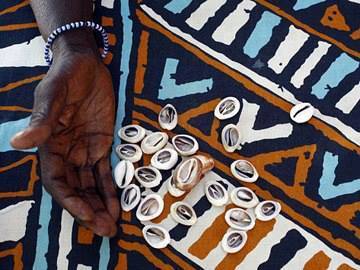
No! Not Western medicine! African ritual medicine!
As a professional Ifa diviner based in Oakland, California, I sometimes struggle when it comes time to explain the importance of ritual (ebo) to both new and old clients.
Luckily, my Yoruba friend, Olushola, recently helped me out.
“Just tell them that it’s like going to the doctor and getting medicine,” he said.
I love that analogy because it’s simple…
But in reality it’s way more complex than that, as anyone in the orisa community will tell you.
For starters, in most cases you’re not actually ingesting ritual medicine. Secondly, in many African traditions, you don’t have to be physically present when ritual work is being done.
In the Yoruba tradition, you’ll know if you need “ebo” because it will be revealed during a divination session with a trained Ifa priest/diviner.
Besides health issues, here are other common reasons for why ritual might be needed:
1. Help with financial issues.
2. Help with relationship issues.
3. Ward off spiritual attacks from enemies.
4. For optimum emotional and physical health.
5. To fight witchcraft or sorcery.
Are you in need of some kind of ritual medicine now?
Based on what I know about life and the work that I do with my elders, I have to say yes.
Why?
Because 1. There are things that are going on in your life right now that you are not aware of but should be addressed spiritually. 2. Because it’s a mistake to assume that things are well just because all seems well now. 3. Because ritual can give you the spiritual and competitive advantage you need to move forward in life.
In some cases, ritual (ebo) is a matter of life vs death…
Don’t assume that tomorrow will be like today! It’s important to pay attention to things that you cannot see and address them spiritually, if necessary.
I shudder to think what my life would look like without the help of my elders and all the powerful rituals that have been done on behalf of my family over the years.
I know one thing! It wouldn’t look pretty!
In Nigeria, ritual work can go on for days or even weeks. The elders I work closely with in Ile Ife, Nigeria spend an average of 2 to 3 weeks working on a ritual. It’s a team effort. As many as 5-7 Ifa priests might work together just to complete one ritual for a client. And they might spend 4 to 5 hours a day working on the ritual.
“Ise t’o l’agbara,” (it’s hard work, they say)
How long does it take to see results or changes? It varies. Sometimes you’ll notice the effects right away, but in other cases it can take weeks, or even months, so it’s hella important to be patient.
Also, some situations might call for more than one ritual treatment, (just like a medical patient might need to have more than one surgery or might require ongoing physical or emotional therapy over a period of time.)
What experiences have you had with indigenous rituals or African rituals? I would love to hear about them so be sure to leave a comment.
And if you’ve enjoyed this blog post, sign up for my monthly, inspirational newsletter below. It’s free!
Blessings,
James Weeks/Producer, Across The King’s River


